YOU HAVE NO ITEMS IN YOUR CART.
Helmets
Showing 1-13 of 13
1-13 of 13
Show per page
Multiple Colors
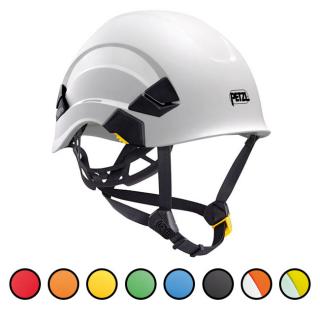
Petzl VERTEX Non-Vented Helmet
Starting at $99.95

This item ships Free
C-PZ-A010AA00

Klein Tools Premium KARBN Non-Vented Class E Safety Helmet with Headlamp
$94.99

This item ships Free
KT-60515
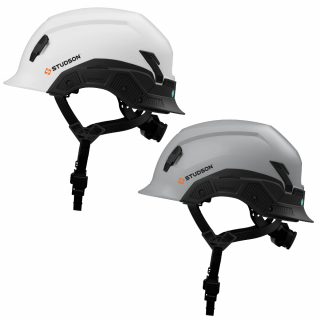
Studson SHK-1 Type 2 Non-Vented Helmet
$150.00

This item ships Free
C-STN-SHK1-EWML
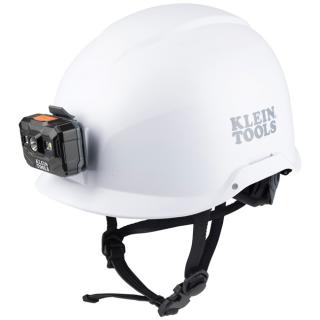
Klein Tools Safety Helmet with Headlamp
Starting at $65.99

Free shipping on orders over $75
C-KT-60150
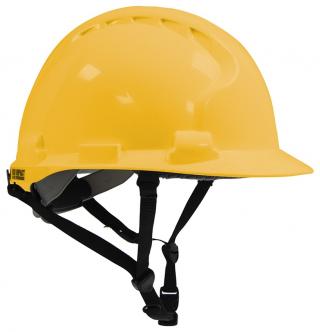
JSP MK8 Evolution Type II Linesman Hard Hat with HDPE Shell
$76.99

This item ships Free
C-PP-280-AHS240

Tigerhood Classic Welding Helmet Shell, #10, 2in x 4-1/4in, Gray, with Speedy Loop
$89.99

This item ships Free
HW-5906GY
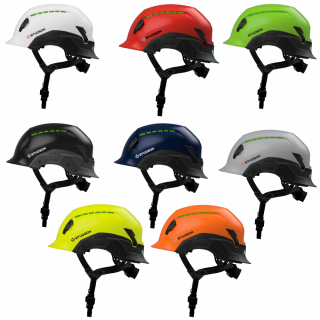
Studson SHK-1 Type 2 Vented Helmet
Starting at $150.00

This item ships Free
C-STN-SHK1-CWML

Kask Zenith X2 Hi-Viz Type 2 Helmet - White
$164.95

This item ships Free
KA-WHE00098-201
Showing 1-13 of 13
1-13 of 13
Show per page
Tower Climber Safety Helmets
When choosing your helmet for your tower climbing gear setup you should consider a range of factors. The best helmet choices will include helmets that are designed for working in vertical positions that feature a four-point chin strap. Other features to look for are electrical insulation, adjustable inserts, sweatbands, and ear muff slots.
Types of Helmets:
There are two types of helmets (type 1 and type 2) classified by ANSI Z89.1-2014 for different levels of protection. Type 1 helmets are designed to only take a blow directly to the top of the head. Type 2 helmets have been designed to reduce forces from lateral impact such as an off-center and/or side impact, in addition to top impacts. These helmets have visible padding on the sides.
Helmet Classes:
There are 3 classes (C, E, & G) that specify electrical protection. Class C helmets are considered conductive and do not provide any electrical protection, these are typically vented and only protect workers from an impact. Class E hard hats offer protection from high voltage conductors up to 20,000 volts, and cannot have any vents in the design. Lastly, Class G offers protection from low voltage conductors up to 2,200 volts, they must also be free of holes for ventilation.
Service Life:
Helmets are not designed to last forever. Service life begins from the time it is put into service and that date should be properly labeled and documented. The suspension should be replaced annually (after 12 months) and the helmet should be replaced after no more than 5 years. If the helmet sustains an impact, it must be retired immediately even if there is no visible damage.
Inspection:
Proper inspection should be taken each time the helmet is worn. Suspension should be installed and worn as the manufacturer intended. Exposure to paint and chemicals may damage the structure of the helmet, therefore steps must be taken to remove paint or chemicals after every use. Pressure sensitive, non-metallic stickers and self-adhesive tape are typically accepted however we strongly recommend you refer to the manufacturer's specifications before applying anything on the surface of the helmet.
Need help finding the perfect helmet? Check in with one of our Gear Experts®.
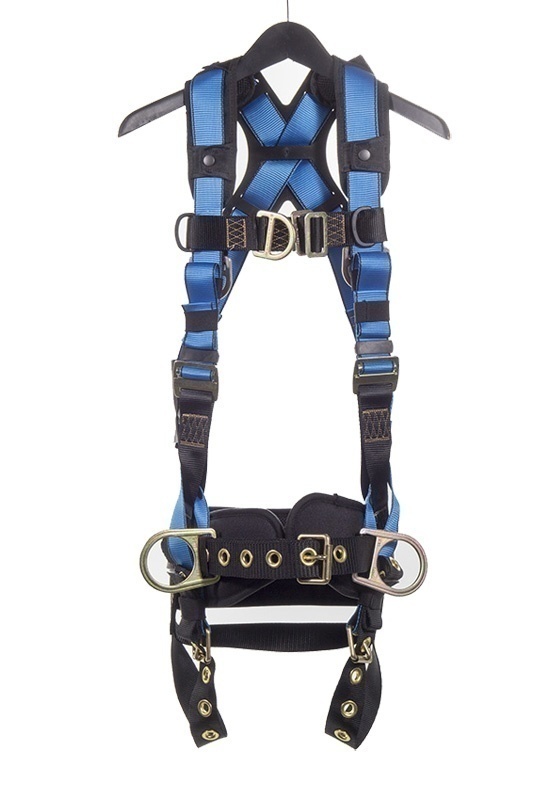





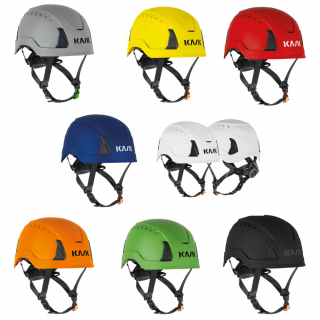
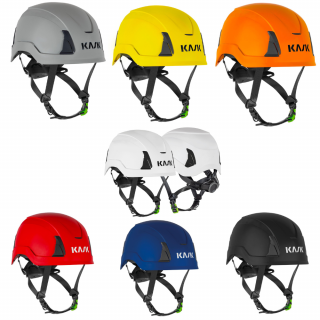
.png)